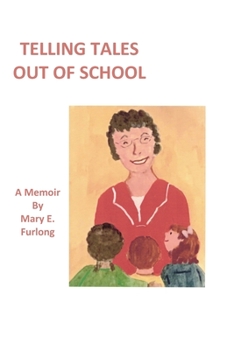Telling Tales Out Of School
One of my long-ago first-grade girls had a charming way of congratulating her friends when they solved a math problem, or read aloud "with expression," or did anything at all she deemed noteworthy. Invoking her favorite cartoon character, Yogi Bear, she would say, "Smarter than the av-er-age kid." It was cute. It was generous. It was kind. It was funny. And it reminded me that she herself was smarter than the av-er-age kid. My judgment of that little girl was borne out years later when she called to tell me about her new business venture in Niagara Falls. We talked at some length about the old days at Beech Avenue Elementary School, recalling incidents like our class trip to Lombardi's Farm when one of the boys took an unforgettable ride on a rambunctious calf's back.
In short, we repeated the memories - the stories - we had told ourselves again and again. That's what people do; they tell stories. They organize their memories as beginning, middle, and end to figure out their meaning, the reason that they are such vivid memories in the first place. As I organized my memories of teaching to write this book, I was struck by one overriding meaning of it all. Every one of the children I was privileged to teach was ... well, 'special' doesn't quite satisfy, for the word has all but lost its meaning. So I'll borrow my former first grader - my young entrepreneur's - phrase and declare: Each and every one of my kids was in some way (sometimes in many ways) smarter than the av-er-age kid.
In short, we repeated the memories - the stories - we had told ourselves again and again. That's what people do; they tell stories. They organize their memories as beginning, middle, and end to figure out their meaning, the reason that they are such vivid memories in the first place. As I organized my memories of teaching to write this book, I was struck by one overriding meaning of it all. Every one of the children I was privileged to teach was ... well, 'special' doesn't quite satisfy, for the word has all but lost its meaning. So I'll borrow my former first grader - my young entrepreneur's - phrase and declare: Each and every one of my kids was in some way (sometimes in many ways) smarter than the av-er-age kid.
Format:Paperback
Language:English
ISBN:B09M59KLJP
ISBN13:9798762487542
Release Date:November 2021
Publisher:Independently Published
Length:124 Pages
Weight:0.42 lbs.
Dimensions:0.3" x 6.0" x 9.0"
Related Subjects
Parenting & RelationshipsCustomer Reviews
0 rating





